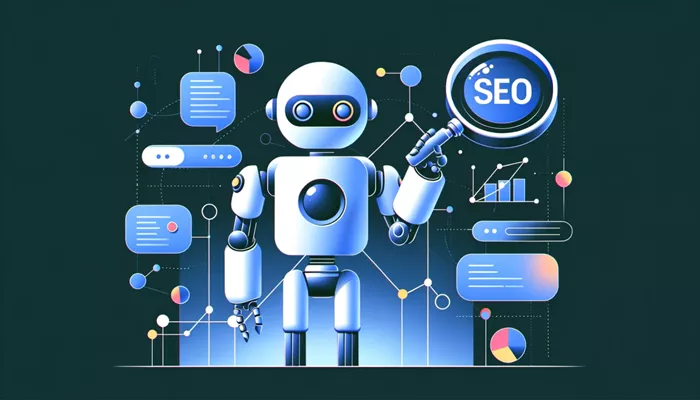The SEO landscape is undergoing a profound transformation, driven not only by evolving algorithms but also by dramatic shifts in user behavior. At the heart of this change is the rise of multimodal discovery—an approach that integrates voice, visuals, and artificial intelligence to reshape how users find and interact with information online. As search engines like Google adapt in real time, the era of traditional blue links is fading, making way for richer, more intuitive search experiences.
Google Isn’t Changing Search, Consumers Are
Search habits have evolved significantly in recent years. Today’s users expect fast, contextually relevant answers, often posing complex questions and engaging through voice commands, images, and multi-intent queries. Google’s search engine is evolving from a passive query responder into an active AI-powered discovery platform designed to anticipate user intent rather than merely respond to it.
At Google’s 2025 I/O keynote and in conversations with engineers and search experts, it became clear that we are entering a new phase: a multimodal, AI-driven discovery era. This era prioritizes personalized, visual, and voice-supported interfaces. As one senior Google engineer noted at the developer conference, “Learning to search with keywords is no longer as important as the ability to express a desire naturally.” This shift highlights a move from traditional semantic search towards retrieval-augmented generation (RAG), aiming to continuously improve the consumer’s discovery journey.
The Decline of Blue Links and Rise of AI Overviews
One of the most visible changes is the rise of AI Overviews—Google’s feature that directly summarizes answers without requiring users to click through to a single source. While this enhances the user experience by delivering quick information, it presents new challenges for content creators, SEO professionals, and web developers.
A Google search liaison recently warned, “Sites built primarily on non-original content may face declining profitability over time. We’re focusing on non-commodity content.” This perspective was reinforced during the 2025 Google I/O event, where original, experiential, structured, and actionable content was emphasized as critical. The concept of “useful content” has evolved into “valuable content”—material that is easy to understand, attributable, and unique, especially when addressing complex, layered user expectations. Such content is rewarded in AI-driven search experiences.
Multimodal SEO Is the New Standard
Search is no longer dominated by text alone. Instead, it integrates multiple modes—text, images, videos, voice commands, and interactive elements—into a seamless user interface. Google’s Gemini AI can now interpret contextual signals across these diverse formats.
To maintain visibility, content must be both readable and rich in visual and structural elements. Winning in an AI-powered search results page (SERP) means incorporating schema markup for products, events, and FAQs, providing annotated screenshots, charts, and video demos, and using structured media such as alt text, transcripts, and tagged entities. Content must support complex, filtered, and multi-intent queries, helping users discover deeper web information.
During Google I/O, engineers noted increasing user reliance on multi-step queries expecting results with images, step-by-step visuals, or embedded videos. One example highlighted AI’s role in improving car rental search results by linking users directly to rich visual content and detailed reviews, thereby enhancing user understanding and satisfaction.
New KPIs: From Clicks to Qualified Engagement
The era of measuring SEO success by traffic alone is ending. As Google rolls out AI Overviews and multimodal search, traditional user behavior metrics like clicks and bounce rates are losing relevance. Google has confirmed that clicks from AI-powered results cannot currently be tracked through Search Console or standard analytics tools.
This shift has significant implications. Click-through rates are declining as AI-generated answers, maps, videos, and paid placements dominate the SERP. Even when content is cited by AI features, it may not generate clicks. Privacy changes and consent models further reduce attribution visibility in platforms like GA4.
A Google employee summarized this challenge: “Many users just want a quick answer, which might not translate to exciting website traffic. But users with more complex queries provide opportunities for deeper, more unique content and superior brand experiences.” This disconnect between expected and actual user engagement pressures SEO teams, analysts, and web managers to rethink success metrics.
Modern SEO KPIs must include session engagement (scroll depth, time on content, triggered events), repeat visitor behavior, assisted conversions, brand search growth, and visibility impressions even without clicks. In a world where AI often serves as both first and last touchpoint, SEO teams must ensure content is discoverable, credible, and referenceable—even without immediate clicks. For organizations still relying on outdated dashboards, this mindset shift is urgent.
Conclusion
Google is building a search engine designed for the future of information consumption—one that moves beyond traditional encyclopedic content investments. Web developers, SEO professionals, and content creators must evolve quickly to remain relevant or risk obsolescence.
Key actions today include auditing content originality and utility, abandoning commoditized material, and aligning optimization strategies with multimodal expectations. Integrating data storytelling and structured data is essential to create retrieval opportunities for both search engines and consumers. Content should be designed for discovery—not assuming users will only read but also watch, ask, or scroll. Keyword research must expand beyond linear traffic forecasts to reflect consumer behaviors and experimental content formats.
Most importantly, success metrics should focus on engagement and outcomes instead of rankings alone. This principle, though widely acknowledged, requires tailored implementation across diverse organizations and websites. Leveraging AI optimization will be critical to navigate growing complexity.
The future of search transcends keywords. It aims to support better decision-making through richer, more intuitive discovery experiences. The good news is SEO holds a unique advantage in this new era. Few disciplines integrate content, data, structure, user experience, and technology as seamlessly. Far from falling behind, SEO professionals are poised to lead in the multimodal, AI-powered search landscape.
Related Topics
- Why User-Generated Content (UGC) Holds Key Value for SEO
- SEO Attribution Challenges in 2025 and How to Adapt
- Boston SEO Firm Drives Local Business Growth

